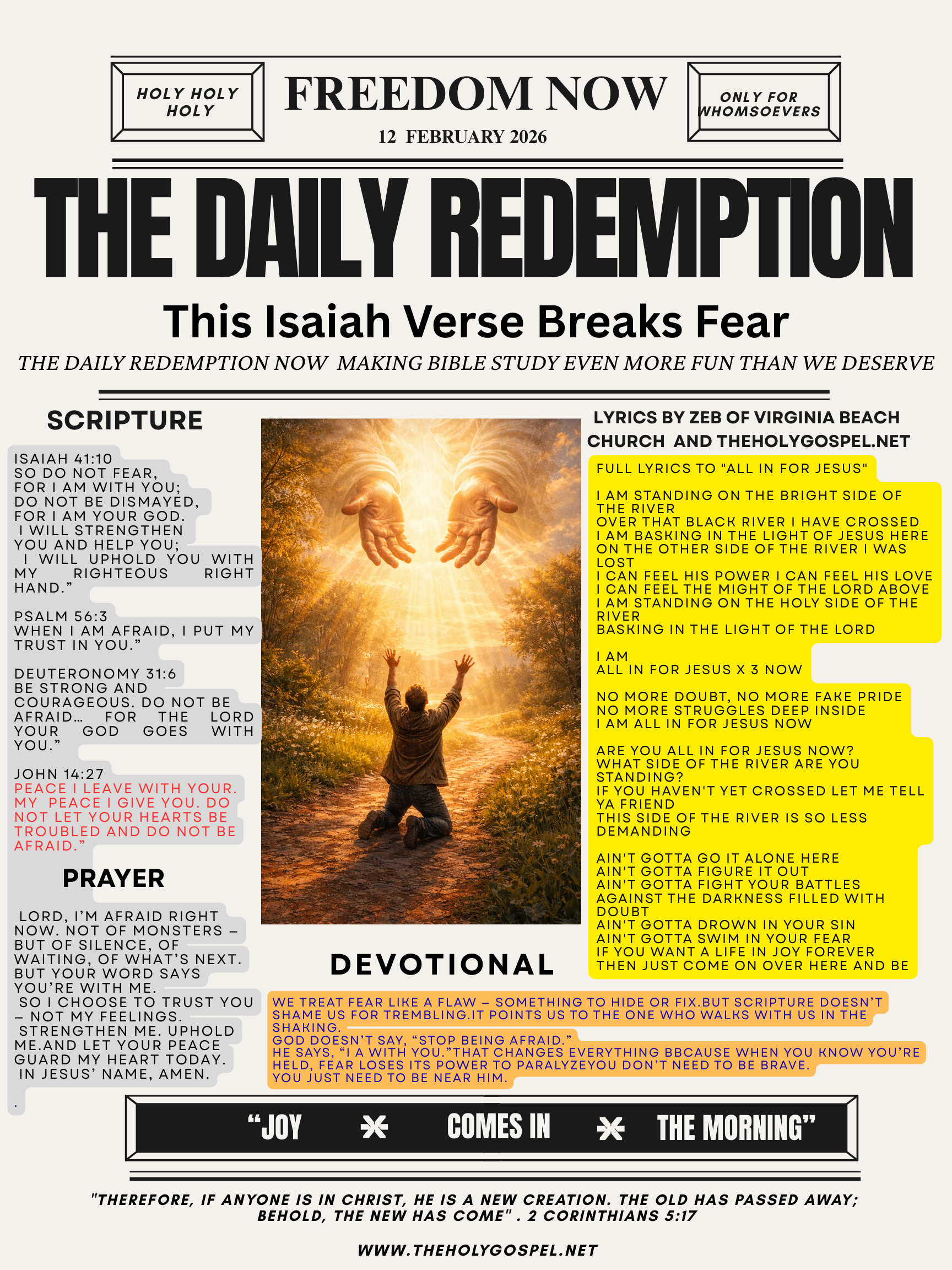Isaiah Chapter 16: Divine Judgment and the Call for Redemption within the Messianic Jesus Context
Introduction
The significance of Isaiah Chapter 16 lies in its exploration of Divine Judgment and the Call for Redemption within the Messianic Jesus context. This chapter offers profound insights into the themes of judgment, redemption, and the establishment of a righteous kingdom. Understanding the messages conveyed in Isaiah Chapter 16 is crucial for comprehending the prophetic nature of the text and its relevance in the broader context of the Messianic Jesus narrative.
Isaiah Chapter 16 serves as a pivotal point in the book of Isaiah, providing a glimpse into the situation of Moab, a nation that is called to submit to Jerusalem and resume bringing tribute as a sign of their submission. The chapter portrays Moab in a state of helplessness and confusion under God’s judgment, emphasizing the consequences of their pride and rebellion. Additionally, the chapter highlights the call for Judah to show kindness and mercy by protecting the outcasts of Moab. It also alludes to the future role of Moab as a place of refuge for Jews escaping the Antichrist during the end times. The chapter concludes with Isaiah mourning for the destruction of Moab and their misguided search for answers.
Overview of Isaiah Chapter 16
Isaiah Chapter 16 provides a detailed overview of the situation concerning Moab, a neighboring nation of Judah. The chapter begins by addressing Moab directly, commanding them to resume bringing tribute to Jerusalem as a sign of their submission. This directive implies that Moab had previously ceased their tribute, indicating their rebellion against Judah. The resumption of tribute signifies Moab’s acknowledgment of Judah’s authority and their submission to it.
The chapter further depicts Moab as being in a state of helplessness and confusion under God’s judgment. This portrayal highlights the consequences of Moab’s pride and rebellion. The people of Moab are shown to be in a desperate state, seeking answers but looking in the wrong places. Their confused state reflects the magnitude of God’s judgment upon them.
In response to Moab’s plight, the chapter emphasizes the call for Judah to show kindness and mercy by protecting the outcasts of Moab. This call demonstrates the compassionate nature of God, who extends His mercy even to those who have rebelled against Him. Judah is instructed to provide a place of refuge for the outcasts of Moab, exemplifying the divine call for redemption and restoration.
Moreover, the chapter alludes to the future role of Moab as a place of refuge for Jews escaping the Antichrist during the end times. This prophetic insight indicates that Moab’s function as a sanctuary will extend beyond the immediate historical context. The chapter concludes with Isaiah mourning for the destruction of Moab and their misguided search for answers. This mourning reflects the prophet’s compassion for Moab and his understanding of the dire consequences they face.
Divine Judgment in Isaiah Chapter 16
Divine Judgment is a prevalent theme in Isaiah Chapter 16. It serves as a stark reminder of the consequences of pride and rebellion against God. Moab’s downfall is attributed to their pride, which blinds them to the consequences of their actions. The prophecy declares that within three years, God’s judgment will come upon Moab. The consequences of Divine Judgment for Moab are depicted, highlighting their helpless and confused state. The chapter also emphasizes Moab’s need for repentance and their misguided search for answers.
One example of Divine Judgment in Isaiah Chapter 16 can be found in verse 6, where the destruction of Moab is foretold. The chapter uses vivid language to describe the devastation that will befall Moab, symbolizing the severity of God’s judgment. The imagery of the people of Moab wailing and mourning over their ruined fields and vineyards reflects the extent of their suffering. This example illustrates how Divine Judgment serves as a means of bringing about repentance and a recognition of the need for redemption.
Divine Judgment upon Moab is a direct consequence of their pride and rebellion against God. Their downfall is a result of their refusal to acknowledge God’s authority and submit to His will. The prophecy in Isaiah Chapter 16 declares that within three years, Moab will face the consequences of their actions. This judgment serves as a wake-up call for Moab, prompting them to recognize their need for repentance and redemption. The chapter also highlights Moab’s misguided search for answers, illustrating their desperate state. This emphasis on Divine Judgment emphasizes the importance of obedience and humility before God.
The Call for Redemption within the Messianic Jesus Context
Isaiah Chapter 16 addresses the call for redemption within the Messianic Jesus context.It speaks of Moab’s role in the fulfillment of Messianic prophecies and their redemption through seeking shelter in Zion and showing kindness to the people of Israel. The chapter anticipates the establishment of the throne of the Messiah, characterized by mercy, truth, and justice.The call for redemption extends to the righteous reign of the Messiah, emphasizing the hope and anticipation for his arrival.
One example of the call for redemption in Isaiah Chapter 16 can be seen in verse 5, where a “throne will be established in mercy.” This verse alludes to the future reign of the Messiah, who will rule with justice and righteousness. The call for redemption in this context is a call for Moab to seek shelter in Zion and show kindness to the people of Israel. This example illustrates the anticipation of the fulfillment of Messianic prophecies and the redemption that will come through the Messiah.
The call for redemption within the Messianic Jesus context is a central theme in Isaiah Chapter 16. It emphasizes Moab’s role in the fulfillment of Messianic prophecies and their redemption through seeking shelter in Zion and showing kindness to the people of Israel. The chapter highlights the future establishment of the throne of the Messiah, characterized by mercy, truth, and justice. The call for redemption extends beyond Moab to the righteous reign of the Messiah, emphasizing the hope and anticipation for his arrival. This emphasis on redemption underscores the significance of the Messianic Jesus narrative in Isaiah Chapter 16.
Interpretations and Perspectives
Isaiah Chapter 16 has been subject to various interpretations and perspectives. The chapter’s prophetic nature and its implications in the broader context of the Messianic Jesus narrative have led to diverse understandings. Some interpretations suggest a dual fulfillment of the prophecy, with the near fulfillment being the destruction of Moab by the Assyrians and the far fulfillment in the end times. The throne of Hezekiah is seen as a type of the future kingdom of Christ, highlighting its significance in understanding the Messianic Jesus context. Different theological perspectives exist regarding the implications of the chapter, further enriching its interpretation.
One interpretation of Isaiah Chapter 16 is that it foreshadows the destruction of Moab by the Assyrians in the near future. This interpretation suggests that the chapter serves as a warning to the people of Moab and a call for repentance. Another interpretation is that the chapter speaks to the end times, with the destruction of Moab symbolizing the judgment that will come upon the nations. This interpretation highlights the prophetic nature of the chapter and its relevance in the broader context of the Messianic Jesus narrative.
Throughout history, theologians and scholars have offered different perspectives on the implications of Isaiah Chapter 16. Some see the chapter as a call to repentance for all nations, emphasizing the need for redemption through faith in Christ. Others interpret the chapter as a reminder of God’s sovereignty and the consequences of rebellion against Him. These interpretations contribute to a comprehensive understanding of the text and its significance in the Messianic Jesus context.
Historical Context: Moab and Assyria
Understanding the historical context of Moab and Assyria is essential in comprehending the prophecy in Isaiah Chapter 16.The chapter is set against the backdrop of the rising power of Assyria. Moab’s relationship with Assyria during the time of Isaiah’s prophecy is significant. Moab sought protection from the Assyrians and submitted to their ruler. The historical context influenced the prophecy, emphasizing the role of Assyria in God’s Divine Judgment upon Moab.
During the time of Isaiah’s prophecy, Assyria was a dominant force in the region, exerting its influence over smaller nations like Moab. Moab sought protection from the Assyrians and submitted to their ruler as a means of survival. This historical context provides insight into the relationship between Moab and Assyria and helps to explain the significance of God’s judgment upon Moab in Isaiah Chapter 16. The prophecy can be understood as a warning to Moab about the consequences of their alliance with Assyria and their rebellion against God.
Analysis of Divine Judgment in Isaiah Chapter 16
Isaiah Chapter 16 depicts Divine Judgment upon Moab as a direct consequence of their pride and rebellion against God. The chapter uses vivid imagery and symbolism to convey God’s judgment and Moab’s helpless and confused state. This emphasis on Divine Judgment serves as a means of bringing about repentance and a recognition of the need for redemption. The consequences of Divine Judgment for Moab are evident in their downfall and desperate search for answers.
One example of Divine Judgment in Isaiah Chapter 16 can be found in verse 7, where Moab is compared to a harp that has been stricken. This imagery symbolizes the devastation that Moab will face as a result of God’s judgment. The chapter uses vivid language to describe the consequences of Divine Judgment, highlighting Moab’s helplessness and confusion. This example illustrates the magnitude of God’s judgment and its purpose in bringing about repentance and a recognition of the need for redemption.
The analysis of Divine Judgment in Isaiah Chapter 16 reveals its significance in conveying the consequences of pride and rebellion against God. The chapter portrays Moab’s downfall as a direct result of their refusal to acknowledge God’s authority and submit to His will. The vivid imagery and symbolism used in the chapter emphasize the severity of God’s judgment and the magnitude of its impact on Moab. This analysis highlights the importance of obedience and humility before God.
#Isaiah16 #DivineJudgment #Redemption #JesusChrist #MessianicContext #PropheticReflection #BiblicalProphecy #TrustinGod’sPlan #AssuranceofDivineJustice #SpiritualDeliverance #ContextofProphecy #HopeAmidstRedemption
Examination of the Call for Redemption
The call for redemption within the Messianic Jesus context is a central theme in Isaiah Chapter 16. It emphasizes the role of Moab in the fulfillment of Messianic prophecies and their redemption through seeking shelter in Zion and showing kindness to the people of Israel. The prophetic implications of the call for redemption point to the establishment of the Messiah’s throne, characterized by mercy, truth, and justice.
One example of the call for redemption in Isaiah Chapter 16 can be seen in verse 3, where Moab is called to “take counsel, execute judgment, make your shadow like the night in the middle of the day.” This verse highlights the role of Moab in the establishment of justice and righteousness. The call for redemption extends beyond Moab to the righteous reign of the Messiah, emphasizing the hope and anticipation for his arrival. This example illustrates the significance of the call for redemption in the Messianic Jesus context and its implications for Moab and the broader narrative of salvation.
The examination of the call for redemption in Isaiah Chapter 16 reveals its central role in the Messianic Jesus context. The chapter emphasizes the need for redemption through seeking shelter in Zion and showing kindness to the people of Israel. This call extends beyond Moab to the establishment of the Messiah’s throne, characterized by mercy, truth, and justice. The prophetic implications of the call for redemption highlight the hope and anticipation for the fulfillment of Messianic prophecies. This examination underscores the significance of Isaiah Chapter 16 in understanding God’s redemptive plan.
Relevant Interpretations and Perspectives
Scholarly interpretations and perspectives on Isaiah Chapter 16 contribute to a comprehensive understanding of the text. Theological implications and applications of these interpretations shed light on the significance of the throne of Hezekiah in relation to the future kingdom. Varying views exist regarding the near and far fulfillments of the prophecy, as well as the role of the Davidic king in judgment, righteousness, and hastening righteousness.
One interpretation of Isaiah Chapter 16 is that it foreshadows the establishment of the future kingdom of Christ. This interpretation suggests that the throne of Hezekiah serves as a type of the Messiah’s throne and highlights the significance of the chapter in understanding the Messianic Jesus context. Another interpretation is that the chapter speaks to the role of the Davidic king in judgment, righteousness, and hastening righteousness. This interpretation emphasizes the importance of the Messianic lineage and its connection to the fulfillment of God’s redemptive plan.
Different theological perspectives exist regarding the implications of Isaiah Chapter 16. Some theologians see the chapter as a call to repentance and a reminder of the consequences of rebellion against God. Others interpret the chapter as a message of hope and anticipation for the establishment of justice and righteousness. These interpretations contribute to a comprehensive understanding of the text and its relevance in the broader context of the Messianic Jesus narrative.
The Role of Moab in Messianic Prophecies
Moab plays a significant role in the fulfillment of Messianic prophecies. The connection between Moab and the Messianic lineage is explored, highlighting their representation of the Gentiles in the Messianic promise. Moab’s role in the future establishment of justice and righteousness is emphasized, underscoring their inclusion in God’s redemptive plan.
The role of Moab in Messianic prophecies is significant, as it represents the inclusion of the Gentiles in God’s redemptive plan. Moab’s submission to Jerusalem and their seeking shelter in Zion symbolize their recognition of the Messiah and their participation in the establishment of justice and righteousness. This role emphasizes the universal nature of God’s salvation and the fulfillment of Messianic prophecies through the inclusion of all nations.
The Future Kingdom of Christ
Isaiah Chapter 16 offers insights into the concept of the future kingdom of Christ. It anticipates the establishment of the throne of the Messiah, characterized by mercy, truth, and justice. The role of the Davidic king in judgment, righteousness, and hastening righteousness is emphasized, further highlighting the anticipation of the righteous reign of the Messiah. The chapter underscores the future establishment of justice and righteousness through the Messiah’s kingdom.
The future kingdom of Christ is a central theme in Isaiah Chapter 16. The chapter anticipates the establishment of the throne of the Messiah, where mercy, truth, and justice will prevail. The role of the Davidic king in judgment, righteousness, and hastening righteousness is emphasized, pointing to the anticipation of the righteous reign of the Messiah. This emphasis on the future establishment of justice and righteousness through the Messiah’s kingdom highlights the hope and anticipation for the fulfillment of Messianic prophecies.
Implications for Today
Isaiah Chapter 16 holds relevance and implications for the present day. It calls for the application of themes such as Divine Judgment and the Call for Redemption to contemporary situations. Extending kindness, mercy, and refuge to those in need mirrors God’s actions towards the remnant of Moab. Eagerly awaiting the establishment of God’s righteous throne and actively seeking redemption in Christ are also encouraged.
The themes of Divine Judgment and the Call for Redemption in Isaiah Chapter 16 have implications for today. The chapter calls for the application of these themes to contemporary situations, emphasizing the importance of extending kindness, mercy, and refuge to those in need. It also encourages a sense of anticipation and active participation in seeking redemption in Christ. These implications highlight the relevance of Isaiah Chapter 16 in guiding our actions and attitudes in the present day.
Conclusion
In conclusion, Isaiah Chapter 16 offers profound insights into Divine Judgment and the Call for Redemption within the Messianic Jesus context. The chapter’s exploration of themes such as judgment, redemption, and the establishment of a righteous kingdom provides valuable lessons for understanding God’s plan of salvation. The historical context, interpretations, and perspectives surrounding Isaiah Chapter 16 further enrich its significance. By studying and exploring this chapter, we gain a deeper understanding of God’s ultimate redemptive plan through the Messiah.



